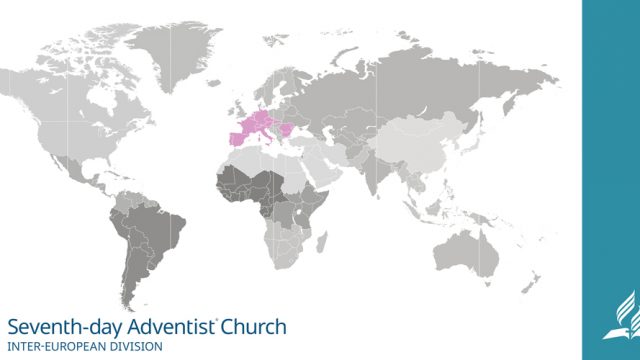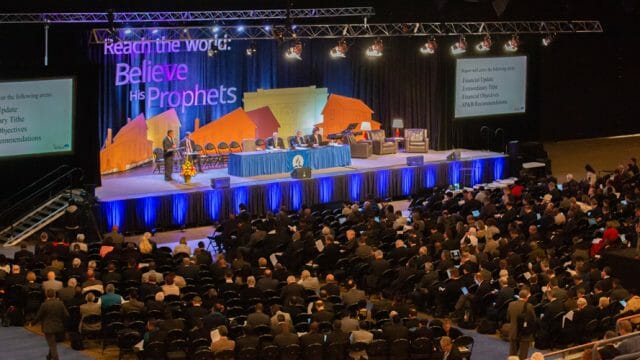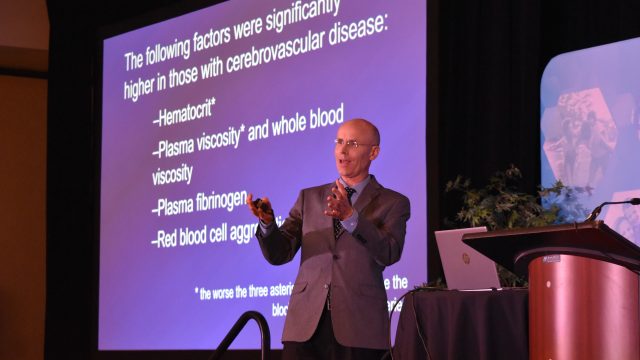The sufferings of this world are nothing compared with its future glory.

Knowing that death was near, Moses stood on top of Mount Nebo, overlooking the Promised Land. He could see the lush plains and vineyards, exactly as God had promised. Moses had seen Israel’s sufferings in Egypt, their harsh treatment, and he had chosen to listen to God’s call to lead them out of slavery. He had relinquished his luxurious life and promising prospects in Egypt, choosing instead “to be mistreated along with the people of God than to enjoy the fleeting pleasures of sin” (Heb. 11:25, NIV). He had served as a lowly shepherd, then patiently endured Israel’s complaints for years. Now, he faced death alone, knowing he would not enter the Promised Land and see the fulfillment of God’s promise to Israel. It almost seemed as if his life of sacrifice and hardship had been in vain. He was deeply distressed.1
What Moses may have felt at that moment reflected everything that is fundamentally wrong with this world. It seems that no matter how hard we try, people are still ungrateful. We still look on helplessly as loved ones suffer. Ultimately, we are faced with the unsurpassable enemy, which is death.
Thankfully, the Bible sheds light on the situation of our world and provides us with a glorious hope.
The Wages of Sin
The Bible begins with a beautiful account of God’s creative masterpiece. Everything was ingeniously designed by God and harmony reigned. In Eden, suffering and death were unheard-of. But humanity’s freedom depended on its loyalty to God: in choosing to disobey God, suffering and death became the lot of humanity (Gen. 2:16, 17; Prov. 16:25; James 1:15). Adam and Eve were banished from the garden, and with them, all creation became marred with sin and corruption (Gen. 3:16-24; Rom. 8:20-22). We, their descendants, have been suffering the consequences ever since (Rom. 5:18).
Scripture affirms that death is not a normal or natural part of life. In fact, death is the opposite of natural. It had no place whatsoever in God’s perfect world. God creates and breathes life into existence (Gen. 2:7; Job 33:4; Eze. 37:5), while death reverses and destroys life. Diseases, wars, and famines are the painful consequences of sin, ultimately leading to death. Adam’s sin allowed Satan to usurp his place as prince of this world (Job 1:6; Matt. 4:8, 9; 2 Cor. 4:4). Since “the wages of sin is death” (Rom. 6:23), Satan considered it his right to claim “all who were in the tomb . . . as his captives.”2 He had successfully provoked Moses to sin against God, costing him entrance into the Promised Land (Num. 20:8-12). But when Satan stepped up to claim Moses’ body, Christ intervened (Jude 9).
The Gift of God
Moses’ belief in God’s promise encouraged him to endure those decades of hardship in the desert. He witnessed countless signs of God’s power and might; he knew that God would be faithful to His word. Since the entrance of sin God has promised time and again that He would deliver us from the bondage of sin and death, providing evidence that He had power to fulfill His promise (Deut. 7:9; Heb. 10:23). Isaac was born, despite Abraham and Sarah’s old age (Gen. 12:2; 21:2, 3). Israel was led miraculously out of Egypt, crossing the Red Sea on dry ground (Ex. 2:23-25; 14:29). God sustained the people during their 40 years in the desert, feeding them daily with manna (Deut. 8:1-10). Countless times God delivered Israel in battle: through Joshua, Deborah, Gideon, and others.
The greatest evidence, however, that God would indeed fulfill His promise is Jesus. Many passages in the Old Testament, including the first promise of deliverance after Adam and Eve sinned, point forward to the Messiah (Gen. 3:15; Num. 24:17; Deut. 18:15; Isa. 53). Jesus’ ministry was a glimpse of God’s power over sin and death. His miracles showed Him restoring vigor to people plagued with disease and suffering. The expulsion of demons showed His authority over the forces of evil.
It was at the cross, however, that the full significance of sin and death became evident. Jesus, the sinless Son of God, bore the sins of the whole world. He died alone, crushed with the weight of complete separation from the Father. But Jesus rose on the third day, demonstrating His power over death, clothed with the eternal life God intended for His people.
Jesus’ resurrection is the foundation of our faith. Had He not risen from the dead, there would be no reason to believe in a better future (John 11:25, 26; 1 Cor. 15:13-26). But because He defeated death, we can be assured that Christ will return as promised, to restore this world to its original glory. In that day, “death shall be no more, neither shall there be mourning, nor crying, nor pain anymore, for the former things have passed away” (Rev. 21:4; ESV; cf. 1 Cor. 15:51-53).3
Moses believed in this promise. He knew that the sufferings of this world are nothing compared to the glorious future God has prepared for us. Because of this, he remained faithful until the very end. And though he was denied entrance into Canaan, Christ claimed him as His child, blessing him with eternal life (Heb. 11:26; cf. Rom. 8:18).
Practicing Hope
In our world, sin, suffering, and death are the norm. Still, we can be assured that God will keep His promise to create all things new, forever eliminating pain and death. While there is no need for despair, we should not simply sit and wait for God to intervene. Although we should live with our eyes set on the future, we still have a responsibility to the present.
That includes acknowledging the suffering of those around us, lending a shoulder to cry on, giving to those in need. It includes being faithful to God’s law, trusting that “the fear of the Lord leads to life” (Prov. 19:23; cf. 12:28).
Finally, it means sharing the good news of salvation and our glorious hope to everyone within our reach. Without this message of hope, people’s best efforts will still lead them straight to the tomb. But we can enthusiastically proclaim Christ’s victory over death! Through faith in Him, we can live confidently today, knowing that the Promised Land awaits.
Prayer Suggestions:
- Pray that the hope we have in Jesus will catch fire in our hearts.
- Ask God to help us share our hope with someone every day.
- Pray for our missionaries worldwide and our local churches as we minister this hope to others in practical ways.
1 See Ellen G. White, Patriarchs and Prophets (Mountain View, Calif.: Pacific Press Pub. Assn., 1890),chap. 43.
2 Ibid., p. 478.








